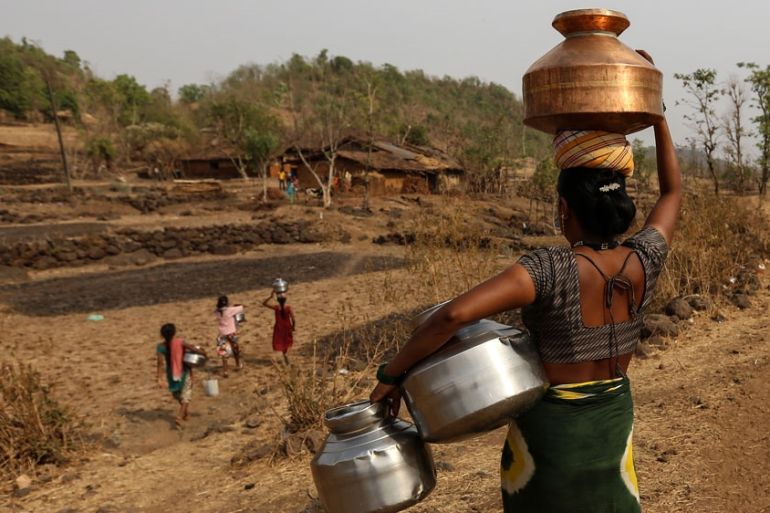Fear mounts as heatwave envelops India
With few people having access to air conditioning, the high temperatures may become increasingly hazardous.

Searing heat continues to grip much of India.
Temperatures in many parts of the country are well above average, with some places reporting temperatures more than 5C higher than would be expected at this time of the year.
Keep reading
list of 4 itemsTurtles swimming to extinction in Malaysia as male hatchlings feel heat
Dystopia of Seoul: AI re-composes Vivaldi concerto using climate data
Thousands protest against over-tourism in Spain’s Canary Islands
The heat is now being blamed for the death of more than 100 people and fears are rising that this could turn into a major catastrophe.
The only guarantee of the end of the high temperatures is the start of the monsoon, but these important rains are not scheduled until the beginning of June.
If the temperatures remain above average until then, this could turn into a major humanitarian crisis.
Last year 2,500 people died in a heatwave which gripped the country in May.
It was India’s second deadliest heatwave, and temperatures remained nearly 10C above average for nearly two weeks before the monsoon rains brought relief.
This year, there are concerns that the heat could remain for far longer.
Globally heatwaves are one of the largest causes of weather-related deaths.
The situation is particularly hazardous if the temperatures do not drop during the night, because this would normally be when the body would recover from the heat.
The situation in India is exacerbated because many people do not have access to air conditioning. Electric fans can only provide relief if temperatures are below 35C, and they have also been shown to accelerate dehydration.
In addition, after two years of below-average monsoon rains, some parts of the country are facing a crippling drought. This puts some residents at risk of severe heat stress as they lug heavy containers of water from the nearest well.
With no end to the heatwave in sight, the hot weather continues to take its toll on the residents of India.
Follow Steff Gaulter on Twitter: @WeatherSteff